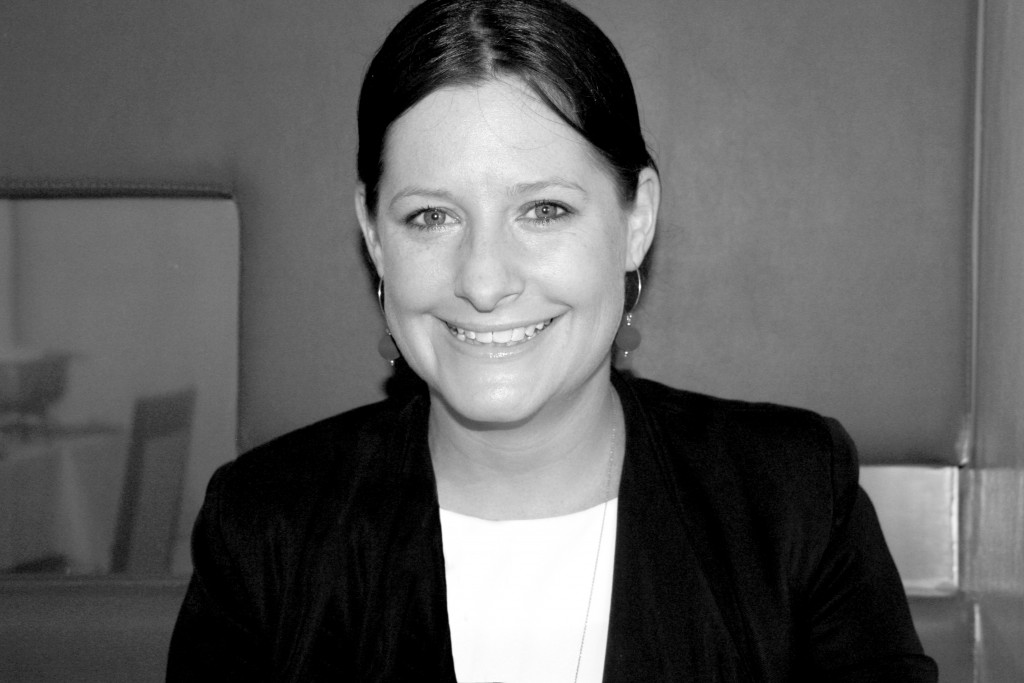#IMAGEInspires: Thinking Of A Job Change? The Career Pivot Is Tricky But Not Impossible
By Sinead Brady
05th Nov 2017
05th Nov 2017
With a job market that’s constantly shifting, the career pivot is one skill you’re going to want to add to your CV. Don’t know where to start? It might be time to call in the experts.
Feeling trapped down a badly lit career cul-de- sac with no means of escape? A lateral-thinking strategy could make all the difference. Stop trying to jump from A to B. Instead, just pivot: the career pivot, which sees you keep one foot planted in your ‘safe zone – your current industry or company – and pivoting with your other foot as you seek an alternative pathway. This isn’t about starting over completely, but moving around in your existing company to an area that’s growing; re-skilling yourself; setting out on the road to self-employment; or taking on part-time jobs where you utilise your existing skills in different ways. A job for life is a thing of the past, so developing versatile skills that equip you for change is an essential part of any smart employee’s armour. As well as technology making some jobs obsolete, an increased uptake of higher education has created greater competition between candidates, and the boom in the casual market has also led to a lack of job security. As businesses finally show real signs of recovering from the recession (albeit slowly), employees are growing in confidence. The combination of all these conditions has resulted in more people looking to make a career change. But how do you successfully pivot your career? How do you make what seems like one of the biggest decisions of your life and not only survive, but truly succeed?
For some people, the need for career transition is so intense it can be paralysing, explains career phycologist Sinead Brady But we need to get better at it. Career transition now defines the modern workplace, and research has shown that it is highly likely that everyone will change jobs ten times before they are 42 and will make at least six career shifts before they retire. Dynamic, ever-changing portfolio careers have now replaced traditional linear careers, and it’s perfectly okay to shift course. To move onwards and upwards as smart and smoothly as possible, you need a plan that motivates and inspires you to make a positive career transition. You need to establish what type of transitioner you are. Do you need a career change or would a job change be better? Identifying latent career skills is key to gaining insight into how you best work, highlighting potential career areas, and how likely you are to excel and be happy on this new career path. Then, it’s a case of formulating an actionable and manageable career plan in the context of current employment trends. Things to consider are potential for career growth and what, if any, part-time or full-time education is required to make the change.
People find themselves at a career crossroads for a number of reasons, and it can be confusing, even daunting, to figure out the next step, explains Paddy Lavelle, director of Career Perspectives Ltd (careerperspectives.ie). But you can take the fear and confusion out of this change by systematically working through three simple questions:
Where am I now?, Where do I want to be? and How am I going to get there?
This is your starting point, and it’s important to get greater clarity on your strengths, skills, personality preferences, management style, leadership style, needs, wants, interests and values. You can also find out what excites you and fills you with passion.
Based on the picture you have now, you can explore future possibilities that best and least fit in line with your personality, skills, experience and preferences. Only then can you establish a career goal. With a clear goal in mind, the next step is to address all of the elements required to achieve it in the form of a career development and action plan. Your plan will detail the strategy, steps and supports you need to successfully qualify yourself, position yourself and market yourself for your preferred role, occupation or career.
You can’t control everything, no matter how hard you try, says John Doherty, a professional coach and workplace psychologist, ‘so when things don’t go to plan, it’s vital to ask the right questions. Often my clients will ask me, Am I in the right job, position, industry, or should I change? Helping people to answer these questions has many layers to it, but the main question to ask yourself is, Why do you want to change?
There are many reasons that a career veers off-plan, he continues. You start on one path, then, over time, you learn more about yourself and the world, and may experience a pull to jump. When people feel stuck in their current position, it can be related to a number of issues. Personal issues intrude; for example, I have a client who has just surfaced after a ten-year relationship break-up and is still grieving and questioning everything. But this is not a good time to change careers!

There are many other values that affect this decision, and it’s important to identify and explore them, whether that’s finances, status, power, or creativity. Some individuals want to change careers because they don’t like their current working environment – the culture of the company no longer fits their values. Others want to leave a job because they are stressed and having difficulties with their boss or fellow workers. Many people are excellent within their field, but when it comes to management, people or leadership skills, they don’t often have the support or training they need. The key is to develop a professional identity that is strong, resilient and confident so that it’s possible to change your situation without having to leave or change your job.
So the road ahead can certainly look bright – and new – so long as you have the tools at hand, and the will to work them to your advantage.
Sally O’Herlihy, 37
Pivoted from Journalism to Teaching
I was deputy news editor of Sky News Ireland and was part of a great team responsible for the news content of the daily bulletins. I loved what I was doing, but had just got engaged and it made me think about what I would like to be doing in ten to 15 years time. The hours and pressures of working in a newsroom are round the clock and don’t stop for holidays or weekends. I decided to go back and qualify as a primary school teacher. It was a tough decision, but I absolutely love teaching now. I try and bring as much of my journalism background into the classroom. I’d advise anyone thinking of a career change to go for it. Life’s too short not to take a chance on change!
Brigid Whitehead, 47
Pivoted from Publishing to Boutique Owner
I worked in publishing for years, but in 2008, the market was declining, so I started to look for a new business venture. At that stage in my life, I knew I wanted to do something
I was passionate about, and I always loved fashion, particularly shoes. The biggest hurdle for me when I decided to open Azur shoe boutique in Greystones was the sheer fear of the unknown. I was very daunted, but I took it one step at a time and I never looked too far ahead. Now I’m thoroughly happy that I made the move. Fear is what holds most people back from changing, but I think you need to feel the fear and do it anyway. I’ve just opened my second store in Dublin 2, so it’s fair to say the risk has paid off.




























